Hey everyone, it’s Ellaine here, your online buddy.
I’ve been working as a Virtual Assistant from the Philippines for three years now, and I’ve learned a lot about finding legitimate opportunities and building trust with clients.
While most interactions are straightforward, the online freelancing world isn’t immune to scammers.
Just yesterday, I had a very close call that reminded me how important it is to stay vigilant. I received a direct message on OnlineJobs.ph—a popular platform for Filipino freelancers—from someone claiming to be an HR representative from Nordstrom.
I am not familiar with them, but I did some research, and Nordstrom is a famous, high-end fashion retailer known for luxury goods and impeccable service.
It seemed like an exciting prospect, but my instincts immediately told me something was wrong.
Despite my three years in the VA industry, this encounter was a perfect reminder that scammers are getting more sophisticated.
I’m sharing my experience to help you spot red flags and protect yourself.
How to Determine and Avoid Scams in an Onlinejobs.ph Platform
Disclaimer: This is based on my personal experience and observations. While these tips can help you identify common scams, always use your best judgment.
1. Be Observant (And Never Click Immediately!)
I receive direct messages from potential clients all the time on OnlineJobs.ph. It’s a normal way to initiate contact.
When this “Nordstrom HR” messaged me, they asked if I was interested in the position, and immediately requested that I contact them on a different platform (not within OnlineJobs.ph).
When I replied, their response included a clickable link. I almost clicked it instinctively. But then I paused, remembering the risk of malicious links.
I didn’t click. Instead, I used a reliable link checker (like NordVPN’s link checker) to examine the URL. The result? Suspicious. It was a clear warning sign.
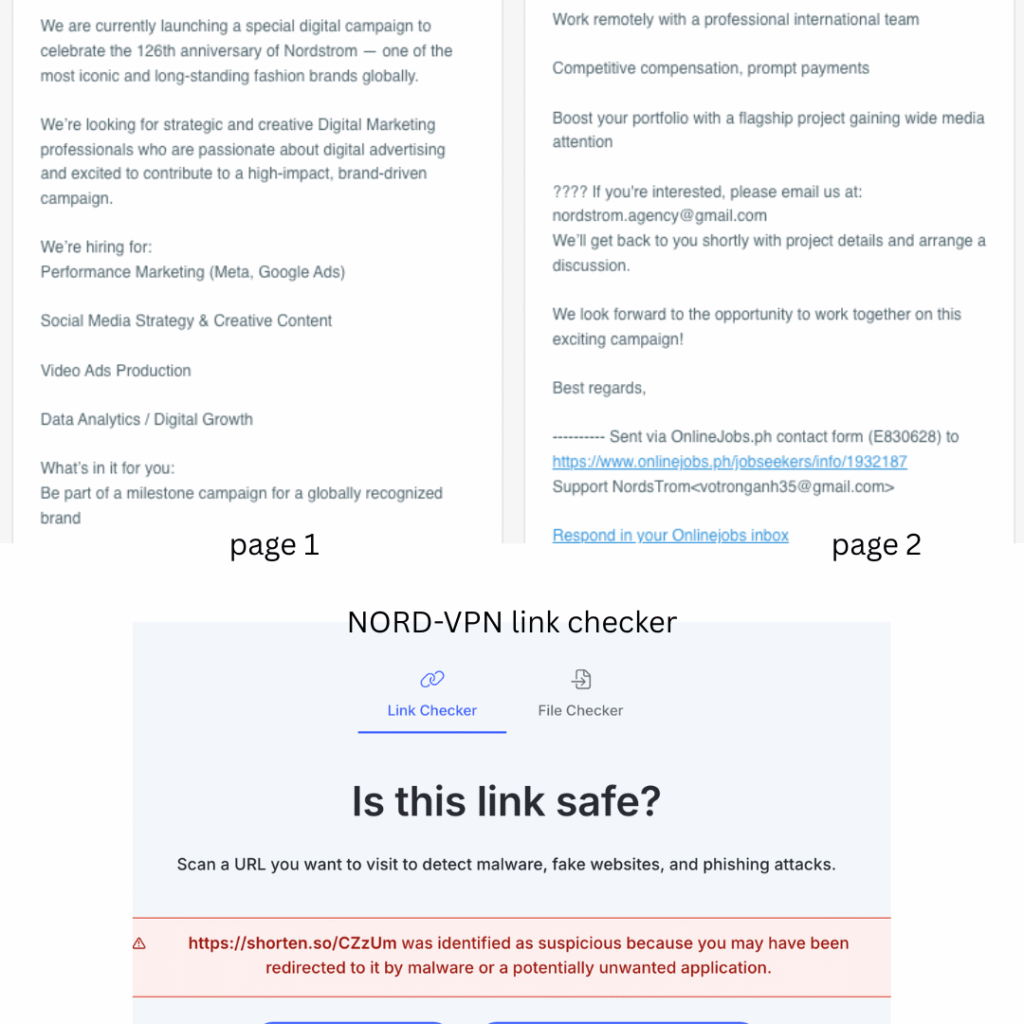
2. Research the Employer’s Profile
When I receive a message, the first thing I do is check the client’s employer profile on OnlineJobs.ph.
A legitimate company will usually have a complete profile, a history of job postings, or at least a presence on the platform.
In this case, when I checked the “Employer” tab for their profile, it immediately said “No record.” This was a significant red flag.
It’s highly unlikely that a well-established company like Nordstrom would have zero history or records on a major hiring platform if they were genuinely recruiting.
A lack of verifiable history often indicates a fake account designed purely to lure freelancers.
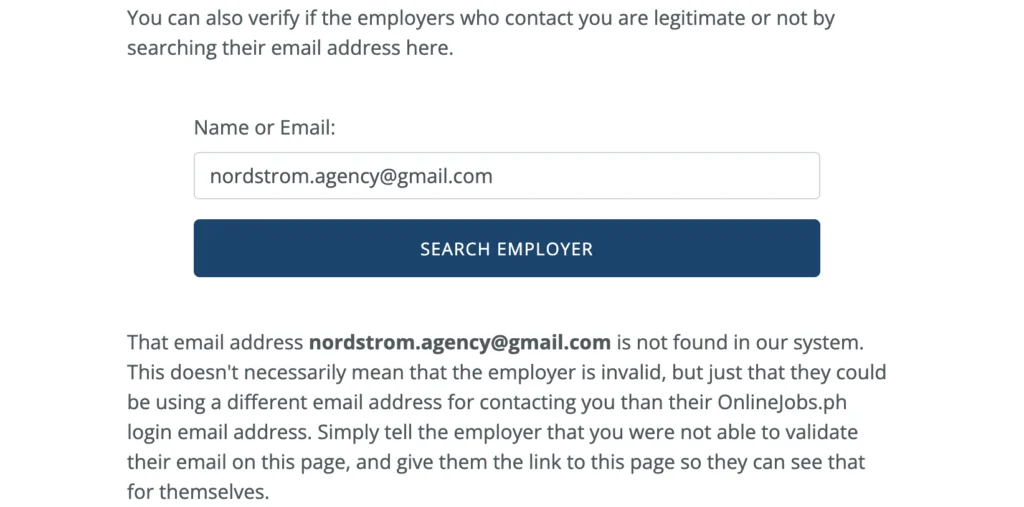
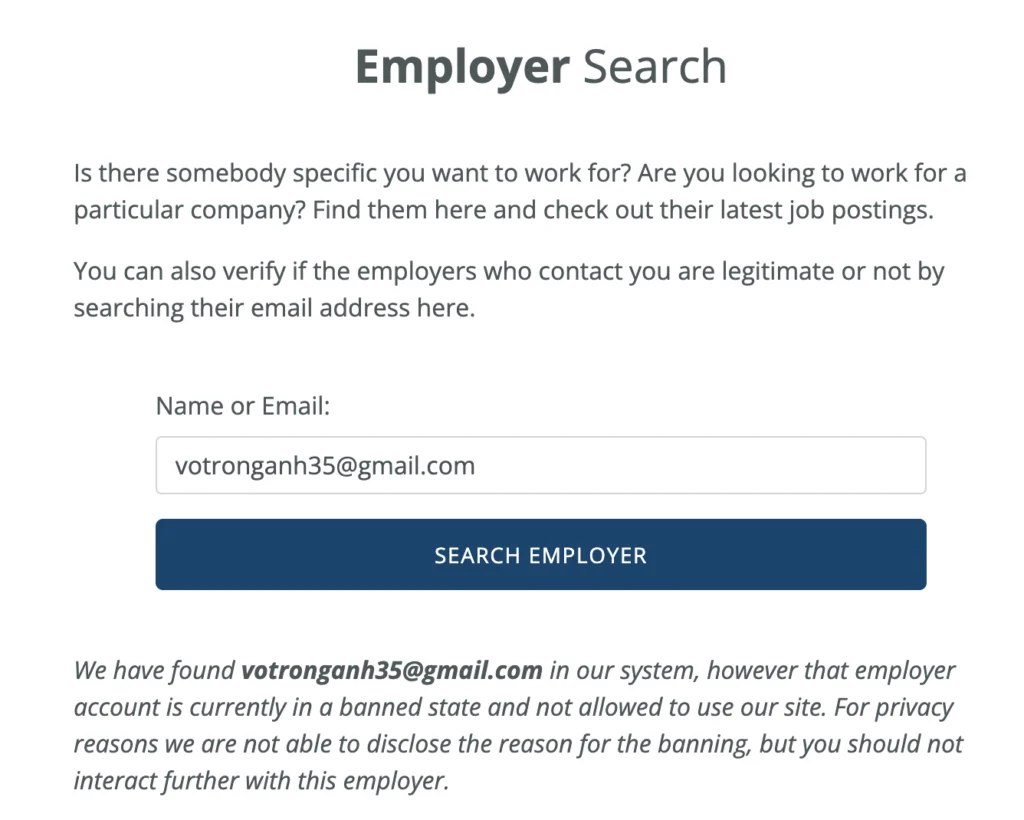
3. Reach Out to the Company (The Official Way)
If I’m genuinely interested in a company, I will always try to verify their hiring practices through their official channels.
This “HR rep” was using a free email domain (like @gmail.com) for a major corporation.
When I contacted Nordstrom directly through their official careers page, I received confirmation that they do not use free domains for HR communication.
Professional companies will always use an official domain (like @nordstrom.com). If an “HR Manager” is reaching out using a Gmail or Yahoo account, it is almost certainly a scam.
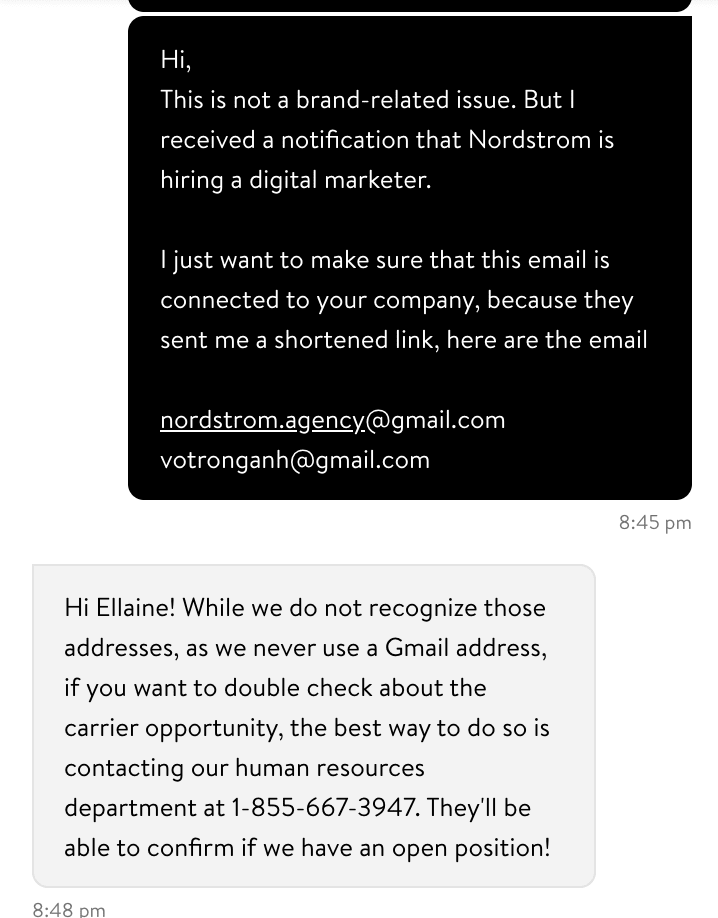
4. Use a ChatGPT Detector on Their Message
I’ve found that scammers often rely on generic templates and AI to draft their initial messages. I ran their messages through a ChatGPT detector, and the result indicated a mix of AI-generated content.
While it’s possible that some busy HR professionals might use AI for drafting templates, I think a truly professional HR representative,
especially from a company known for its personalized service, would use more authentic, specific language when recruiting. When the message feels generic, automated, or overly formal, it’s worth questioning.
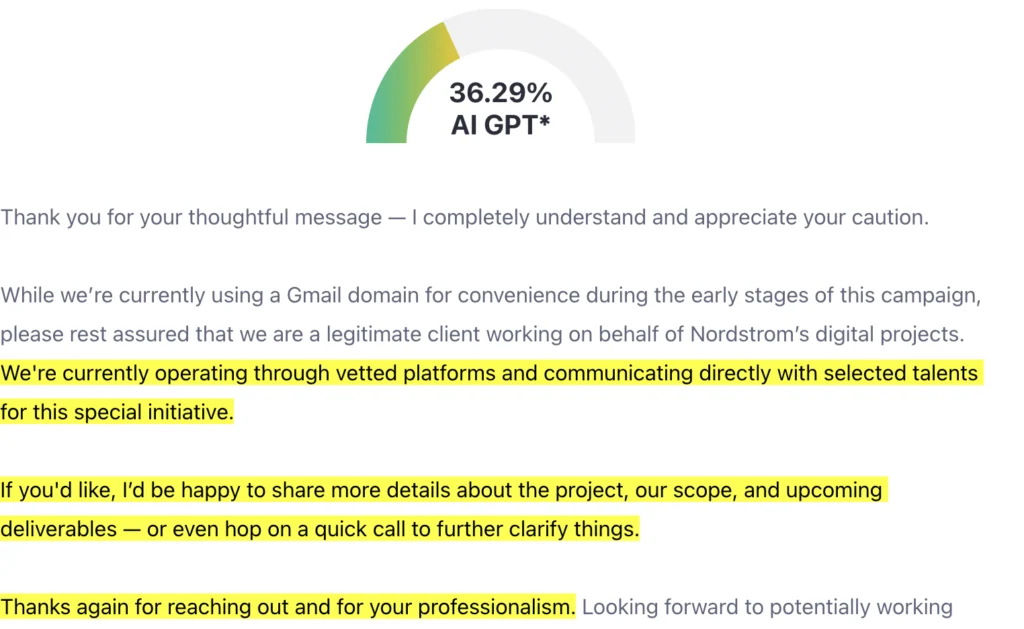
5. Watch for Urgency to Click the Link
Scammers often try to pressure you into immediate action. In this interaction, they repeatedly sent the link and implied that I needed to click it right away to proceed with the application.
This sense of “urgency to click” is a common tactic. Legitimate HR processes typically involve professional correspondence, an interview scheduling phase, and clear, non-pressurized instructions. If they are pushing you to click a link within minutes of contact, sound the alarm.
In this specific case, I had also noticed something else suspicious. I sent an email to them at 8:12 PM, and to my surprise, they replied after just three minutes.
As a VA, we know that HR professionals and recruiters are busy; they usually take much longer—often more than 24 hours—to respond. That immediate reply felt wrong to me.
When my gut told me to wait, and I didn’t send a message back right away, they followed up after just 30 minutes with another message, urging me to respond. That rapid response time and the immediate follow-up were huge red flags.
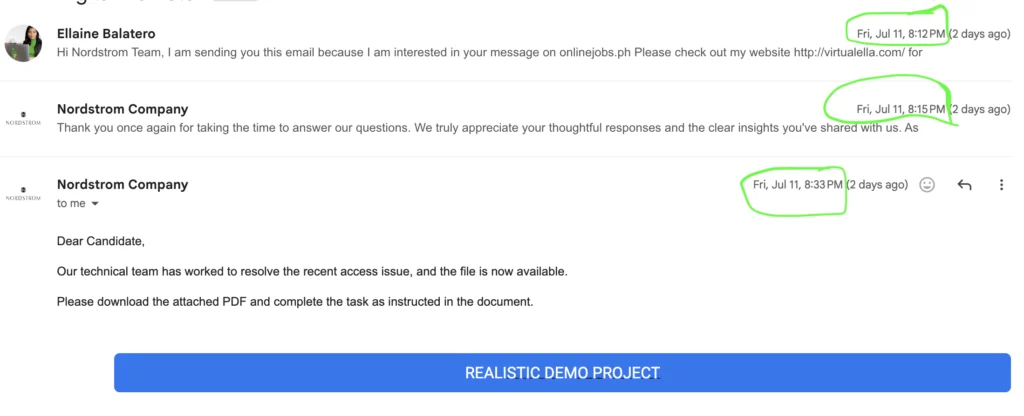
I went back to my inbox on OnlineJobs.ph to review the conversation thread. To my confusion, the message was completely gone. I hadn’t moved it to the trash or deleted it myself, yet it had vanished from my inbox.
Being a Virtual Assistant offers incredible opportunities, but it requires staying sharp. My experience with the fake Nordstrom recruiter reinforced that instinct and observation are your best tools.
Have you encountered similar scam attempts while looking for VA work? Share your experiences in the comments below, and let’s help each other stay safe!
